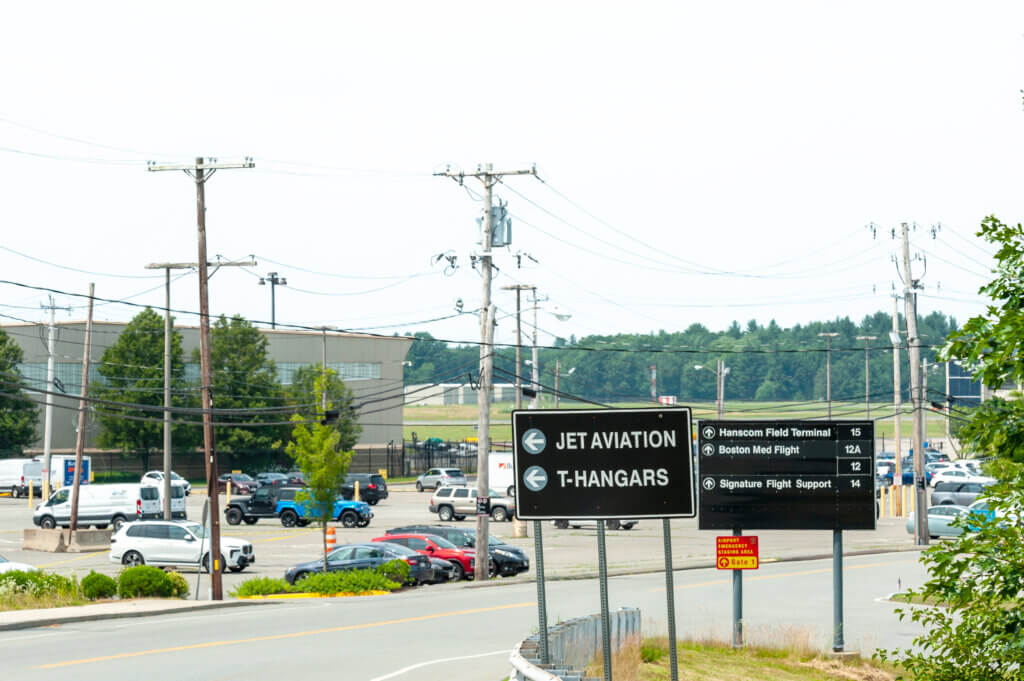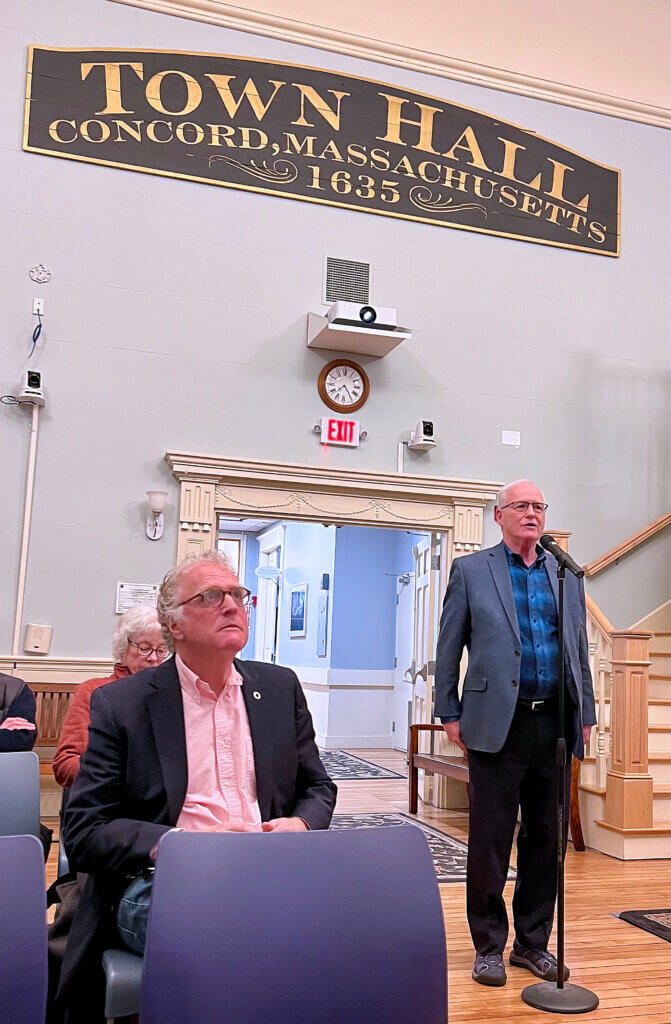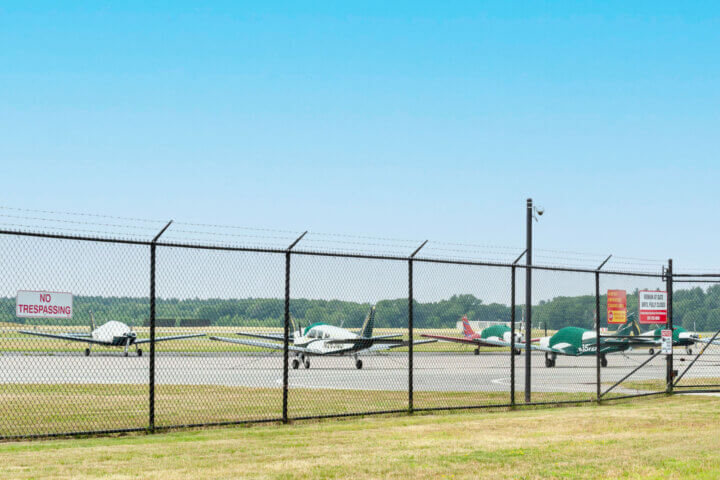By Erin Tiernan — Erin@theconcordbridge.org
A change in how Massport must consider climate change when prioritizing projects could affect a controversial expansion of hangar space for private jets at Hanscom Field.
State Sen. Michael Barrett (D-Lexington) wants to alter the Massachusetts Port Authority’s organizing charter. It would require MassPort to prioritize goals like reducing greenhouse gas emissions in economic development planning.
The change is tucked inside the Senate’s recently passed climate bill, which Barrett wrote as chair of the Joint Committee on Telecommunications, Utilities and Energy.
If the bill passes both the House and Senate this month, Barrett said the charter update would delay or even derail the Hanscom project.
“We live in an age where rampant economic growth is no longer sufficient as a raison d’etre for public agencies,” Barrett said.
“The governor has said that an all-government approach to climate change is needed, so now we ask of every single organization — Massport included — ‘What’s your role in fighting the existential crisis of our time?’”

Hanscom’s importance
The Climate Roadmap Bill ups the ante on renewable energy as the state tries to meet climate goals, including net zero greenhouse gas emissions by 2050. And it directs Massport to “promote commerce, economic prosperity, safety and security” while “prioritizing environmental resilience.”
The Massport language in the bill isn’t specific to the airport, but “Hanscom underlined the importance,” Barrett said. He pointed to the Massachusetts Environmental Policy Act Office’s recent rejection of developers’ Draft Environmental Impact Review — and the roughly 1,500 public comments opposing the project.
Massport leaders, he said, would have to reconsider the project, which one study says could add parking for up to 79 private jets. That could bump greenhouse gas emissions by up to 161,348 metric tons annually — the equivalent of driving more than 38,000 cars for a year.
What will change
Government accountability researcher Phineas Baxandall, interim president of the left-leaning Massachusetts Budget and Policy Center, said it’s unclear how Massport leadership might interpret the change in its directive if the measure becomes law.
If the change goes through, he said, it could power fights against projects seen at odds with climate aims.
“It will give them a sort of deeper point of leverage in terms of arguing that Massport would be violating its strongest expression of its values,” he said. “I would think that it would give potential litigators a stronger basis for a challenge.”
Massport spokeswoman Jennifer Mehigan said the agency is “aware” of Barrett’s proposal.
“Our team is currently implementing policies and capital investments to achieve the ambitious Net Zero goals we announced two years ago, spending nearly $500 [million] in projects across our facilities over the next five years,” she emailed.
Behind the push for change

Photo by Celeste Katz Marston
Barrett was inspired to retool Massport’s mission after seeing the opposition to the Hanscom proposal, which would more than double available hangar space for private jets.
“We need climate change-focused decision-making, and Hanscom is a case in point,” he said. “Projects like Hanscom can no longer simply be about shoring up the finances of a Hanscom general aviation airport — or Massport, for that matter.”
The proposal would add 17 new hangars, renovate another, and add 15,000 gallons of new fuel storage at the public airport that borders Concord, Bedford, Lexington and Lincoln. State regulators recently required more legwork from developers on understanding and mitigating potential harms.
Critics have pointed out the expansion would serve mostly wealthy elites and allow more private jet flights — among the most polluting forms of transportation — just as Massachusetts is trying to slash carbon emissions.
Developers contend it would have a net-zero climate impact. They claim the added hangar space would reduce the need for “ferry flights” in which pilots drop off passengers, fly to another location to wait, and return for pickups. The state has directed developers to produce more data.
Balancing climate goals
Barrett said he hopes his bill inspires Massport leadership to rethink the Hanscom project and reshape its future priorities.
“If this bill passes and Massport hasn’t put its final call on this in writing when the new language kicks in, many of us would ask the Board of Directors to recalibrate,” he said. “The board would have to take a step back and take a look at all contracts.”
Massport is one of a handful of agencies Barrett is targeting in his effort to align state agency directives with Commonwealth climate goals.






